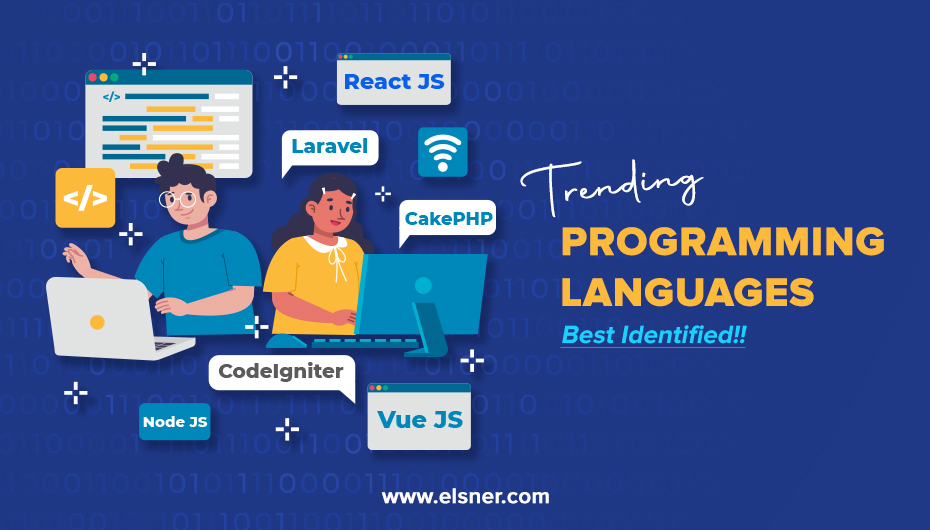- Let us Look at Some New Features of PHP 8:
- The PHP JIT Compiler
- JSON Extension
- Union Types
- Order of String Operators
- Default Reporting of Error
- Engine Warnings
- Type Errors
- Type Annotations
- Conversion of DateTime
- Stringable Interface
- Usage of :: a class for Objects
- Weak Map
- Static Return Type
- New Functions Introduced for PHP Web Development Services
- Str_contains
- Str_starts_with() and str_ends_with()
- get_debug_type
- Fdiv()
- get_resource_id()
- Wrapping It!
PHP 8 is rolled out a few weeks back and it is important to know about its new features. It has introduced various new functions, improvements, and features. PHP is known as the easiest programming language to learn. Every PHP Development Company USA is waiting to hands on the latest version and introduces new features into their platform.
Let us Look at Some New Features of PHP 8:
The PHP JIT Compiler
PHP interprets the code line by line instead of compiling. The JIT compiler works by compiling the parts of code during runtime and performs this similarly to the cached version of the code. The new feature is tested and it will lead to a massive improvement in terms of performance.
JSON Extension
The scripting language that is the JSON extension had an option to be turned off in the earlier versions. Since JSON is an important format and many PHP Development Companies decided that this extension should be active all the time.
Union Types
With this PHP 8 version, two or more languages can form a union. There is a restriction as void cannon be a part of union type it does not return value in the output.
Order of String Operators
This feature was earlier introduced during PHP 7.4 but now it is kept in full effect. This feature reacts more intelligently with the multiple operators:Previously:
- Echo (“sum ” .$a) + $b;
Now:
- Echo “sum:” .$a + $b;
Default Reporting of Error
Many errors were ignored previously and provide output like E_ALL, E_DEPRECEATED, and E_NOTICE. This new feature allows the detection of errors just make sure you set the display_errors=Off on the server-side. You might need to hire a PHP Expert to understand these reports and resolve the issues effortlessly.
Engine Warnings
Until PHP 8 was rolled over there were many errors that only displayed warnings or notes. Now it has been updated with a full list of new PHP error messages that can be seen in the documentation.
Type Errors
Earlier User-Defined functions were used to trigger TypeErrors and internal functions issued warnings. Now with PHP 8.0, the internal functions will output the TypeErrors.
Type Annotations
The internal functions and methods will have the correct type of annotations.
Conversion of DateTime
The developers have made it easier to convert DateTime and DateTimeImmutable using two functions:
- DateTime::createFromInterface()
- DatetimeImmutable::createFromInterface()
Stringable Interface
In the earlier version of PHP, this had to be performed manually but with the update, the interface is implemented automatically.
Usage of :: a class for Objects
Instead of using get_class() to assign the class to objects now apply ::class to objects directly. This makes the source code short and easy to decode.
Weak Map
WeakRefs and WeakMaps are used to delete objects when the cache references the entity class of objects. This helps in the resource-saving handling of objects.
Static Return Type
Static is a special class name that performs a valid return type in the new version.
New Functions Introduced for PHP Web Development Services
Str_contains
There are different ways to find if one string contains another. Earlier you used strpos() which used haystack and needle to look for the string and returns integer indication first position where the needle is found. Since it’s the returning position of one string into another, you cannot check whether strops() found it or not. To avoid this now you have str_contains() which returns Boolean value while makes it easier to know whether or not the needle is in the haystack. It makes the procedure easy to write and maintain the code.
Str_starts_with() and str_ends_with()
These two functions allow you to search for a needle inside the string. They check if the given string starts or ends with another string.
- Str_starts_with (string $haystack , string $needle) : bool
- Str_ends_with (string $haystack , string $needle) : bool
Both these functions will return false if the $needle is longer than the $haystack.
get_debug_type
This new function returns the type of variable. This is similar to the gettype function but it returns native type names and resolves class names.
Fdiv()
This function is similar to the fmod() and intdiv() functions which allow division by 0. Instead of displaying errors, it will give you INF, NAN, or -INF depending on your case.
get_resource_id()
The resources in PHP are special variables that refer to external resources. PHP 8 adds this function to make the operation obvious and type-safe:
- $resourceId = get_resource_id($resource);
Wrapping It!
We have shared with you some of the interesting features and functions that are rolled out with PHP 8. You might be thinking of hiring a dedicated PHP developer
as it requires a lot of knowledge and experience to work with updates and keep your data safe.
Get in contact with a PHP development Company the USA, as it will have a whole team that can handle your platform effortlessly and will be dedicated to supporting you whenever required.

About Author
Tarun Bansal - Technical Head
Tarun is a technology enthusiast with a flair for solving complex challenges. His technical expertise and deep knowledge of emerging trends have made him a go-to person for strategic tech initiatives. Passionate about innovation, Tarun continuously explores new ways to drive efficiency and performance in every project he undertakes.




